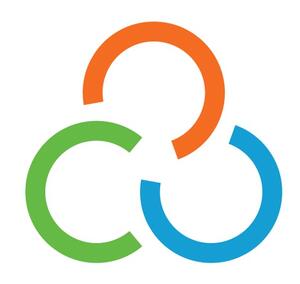Syrian Refugee Finds Hope in Her New Beehives

This post is written by Matt Hackworth, Corus International
It was hard to have hope for the first few years. Living as a refugee in Lebanon within sight of her native Syria, Walaa Ali al Ali worked odd jobs to support her family — a store assistant here, a caregiver for elderly neighbors there. Then she saw an advertisement for a job that not only piqued her interest but also spoke to her heritage.
“Beekeeping is in my blood,” she says with a proud smile. “My grandfather kept bees, and I remember him showing me things when I was a child.”
Memories of those happier times swirl in the smoke that pours from her pitcher, calming the bees that flit in the bright sun under the watchful gaze of almond eyes, behind the usual beekeeper’s screened hat.
A refugee’s story
Walaa appreciates calm in her hives as much as her home. Driven out by fighting in Aleppo, her family made their way to Lebanon to live as refugees on the edge of the Syria-Lebanon border. At age 30, she is the breadwinner for her mother, her developmentally disabled brother, a niece and a nephew. Yet the challenges of providing for her family fail to cast any darkness on her dreams of opening a restaurant.
Beekeeping dovetails seamlessly with her love of cooking. She intuitively dotes on each of her four beehives, gently pulling honeycombs. “Bees are gentle and very domesticated,” she says.
Lutheran World Relief joined Lebanon’s Makhzoumi Foundation to train women beekeepers, opening doors to a sustainable income and a greater connection to her new home community.
Lebanon is home to more refugees per capita than any other country on the planet, driven largely by the war in Syria to the west and the Israeli-Palestinian conflict to the south.
Sustainable income, sustained hope
Fabi Abi Soulemani is a chemical engineer who uses honey and its associated products in factory production. But he enjoys teaching beekeeping to women like Walaa, he says, because their intuition comes naturally even though it is a largely male-dominated profession in Lebanon’s patriarchal society.
“We aim to train women because they are usually at home,” he says. “This way they can continue caring for their families and still participate in the economy.”
The honey and combs Walaa sells are part of the family’s income that keeps them alive in their new country. A family friend helped Walaa’s family find a place to rent. They now have two rooms in an unfinished, cinder-block home on the edge of the storied Bekaa Valley, where olive trees and vineyards line rocky hillsides.
Walaa started her beekeeping with 14 other women in an introductory course in July. Generous donors contributions made sure she had two hives and basic equipment to get started — which normally cost around $300 per student. Already, she’s doubled her production and pursued more sophisticated instruction from her teacher. She also started a small household garden, from which she sells vegetables.
Her resilience as a young refugee caring for her family now inspires other refugees. She works with Makhzoumi Foundation to teach life skills to others who face the refugee’s challenges of adjusting culturally and economically. Perhaps they pick up on her infectious hope, evident when she casts a gaze out over the place she now calls home.
“I see a future where I have maybe 20, 40, or 60 or more hives,” she said. “I still want to open a restaurant someday, whether I get to go home or I stay here — but honey will be part of it for sure.”
